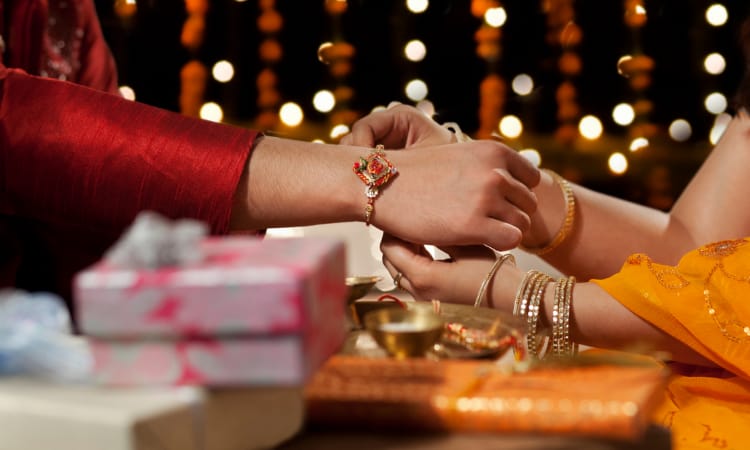Rakshabandhan: Celebrating the Bond of Sibling Love
Rakshabandhan, often simply referred to as Rakhi, is a vibrant and cherished festival in India that celebrates the unique bond between brothers and sisters. Observed on the full moon day in the Hindu month of Shravana, which usually falls in August, Rakshabandhan is a joyous occasion marked by rituals, sweets, and heartfelt emotions.
Origins and Significance
The festival’s name, Rakshabandhan, translates to “the bond of protection.” It symbolizes the promise made by brothers to protect their sisters and uphold their honor, while sisters pray for their brothers’ well-being and success. The tradition is deeply rooted in various mythological stories and historical events.
One popular legend associated with Rakshabandhan involves the epic Mahabharata. According to this tale, Draupadi, the wife of the Pandavas, tied a protective thread around Lord Krishna’s wrist, and in return, Krishna protected her during the infamous disrobing episode in the Kaurava court. This act of protection cemented the notion that Rakhi represents a bond of mutual respect and care.
Another story is about Queen Karnavati of Mewar and the Mughal Emperor Humayun. Facing an imminent invasion, the queen sent a Rakhi to Humayun, appealing for his protection. Moved by her gesture, Humayun honored her request and came to her aid. This historical incident highlights the festival’s essence of seeking and offering protection.
Traditions and Customs
Rakshabandhan is a time for family gatherings and festivities. The day begins with sisters performing a traditional puja (prayer ceremony) for their brothers. They tie a sacred thread, known as a Rakhi, around their brothers’ wrists while reciting prayers for their health and prosperity. In return, brothers offer gifts and promise to safeguard their sisters from any harm.
The Rakhi thread, often adorned with colorful beads and intricate designs, symbolizes the sister’s love and prayers. Each Rakhi is unique, reflecting the sister’s creativity and the special bond she shares with her brother. After the Rakhi ceremony, families celebrate with a feast, exchanging sweets like ladoos, barfis, and gulab jamuns.
Modern Celebrations
While the essence of Rakshabandhan remains unchanged, the festival has evolved with modern times. Today, it is celebrated not just by siblings but also by extended family members and friends. In urban areas, where families might be dispersed, Rakhi is often sent through postal services or courier, and video calls have become a popular way to connect with loved ones.
Rakshabandhan has also transcended traditional boundaries, embracing the concept of sibling-like bonds among friends and colleagues. Many people now celebrate the festival with close friends, regardless of gender or blood relation, reflecting the festival’s spirit of affection and mutual respect.
Cultural Impact
Rakshabandhan is more than just a familial ritual; it is a cultural celebration that reinforces the values of love, protection, and responsibility. It reminds individuals of the importance of maintaining strong familial ties and upholding the cherished values of commitment and care. In a rapidly changing world, Rakshabandhan provides a moment to pause and appreciate the enduring bonds that connect us.
As the festival continues to evolve and adapt, its core message remains timeless: the celebration of the special bond between siblings and the promise to support and cherish one another through all of life’s challenges. Whether through traditional rituals or modern adaptations, Rakshabandhan stands as a testament to the enduring strength of familial love and the joy of togetherness.

